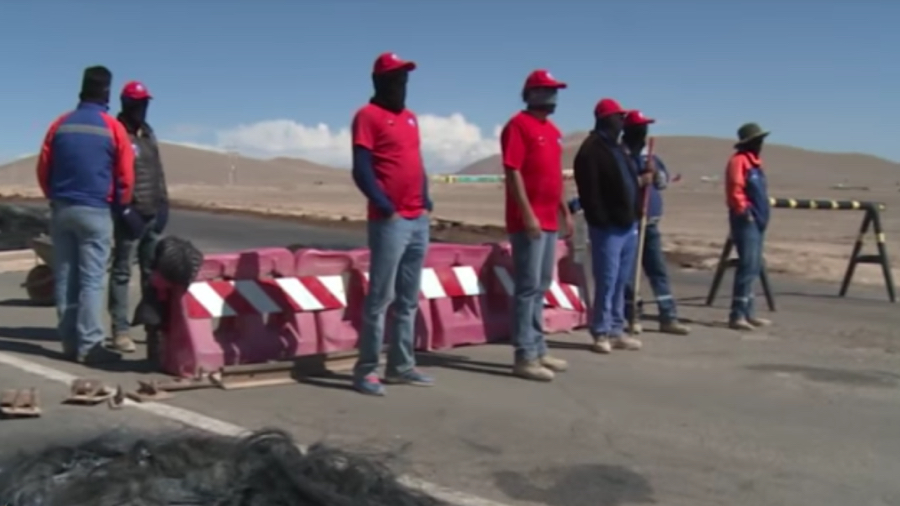Strike at BHP’s Chile copper mine continues, union opposes substitute workers

A strike by a union of remote operations workers at BHP’s Escondida and Spence copper mines in Chile entered its second day on Friday, as the company uses replacement workers to ensure continued production, a union leader told Reuters.
The 200-member union runs BHP’s Integrated Operations Center, which remotely manages pits and cathode and concentrator plants from Santiago.
The union’s secretary, Robert Robles, told Reuters that members would continue to hold demonstrations in Santiago. He said the company, meanwhile, was placing substitute workers in the mines located in northern Chile, a move that the union opposes.
“Complaints were filed with the Labor Directorate for violation of the right to strike and anti-union practices,” he told Reuters.
BHP has not responded to requests about the status of its operations after the start of the strike.
The strike, which impacts Escondida, the world’s largest copper mine, began on Thursday after efforts to ink a labor contract with the company’s management fell through, fueling uncertainty over the global supply of the red metal.
The walk-off also marks the first by remote operations workers at the Escondida mine, testing the company’s resiliency to labor action in an era when more work is automated or off-site.
For its part, the powerful, much larger union of on-site workers at Escondida showed its support for the remote workers, and criticized recent labor reforms that have allowed companies to temporarily replace staff during strikes.
“There is no right to an effective strike for them, a situation that affects a large part of Chilean workers,” the union in a statement.
The much larger union of on-site workers is also set to begin collective bargaining for a new contract in the coming weeks, and have warned they are bracing for a prolonged strike.
The tensions come as copper prices have spiked amid soaring demand as the world’s largest economies recover, giving unions in the world’s top copper producer Chile additional leverage as they enter key labor negotiations.
(By Fabian Cambero, Hugh Bronstein and Dave Sherwood; Editing by Marguerita Choy and Nick Zieminski)
{{ commodity.name }}
{{ post.title }}
{{ post.date }}




Comments